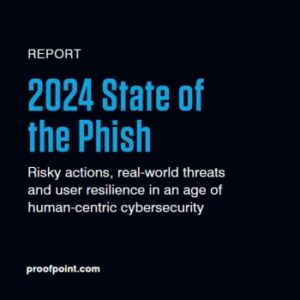Phishing study: Employees are taking far too much risk
Almost two thirds of employees in Germany (64%, worldwide 68%) knowingly expose their company to risks that could lead to ransomware or malware infections, data security incidents or financial losses. These are just some of the findings from the Proofpoints 2024 State of the Phish Report. That's just one finding from Proofpoint's 86th annual State of the Phish Report. While the frequency of successful phishing attacks has decreased slightly (2023 percent of the companies surveyed in Germany experienced at least one successful attack in 89, compared to XNUMX percent in the previous year), the negative consequences have increased sharply:...







